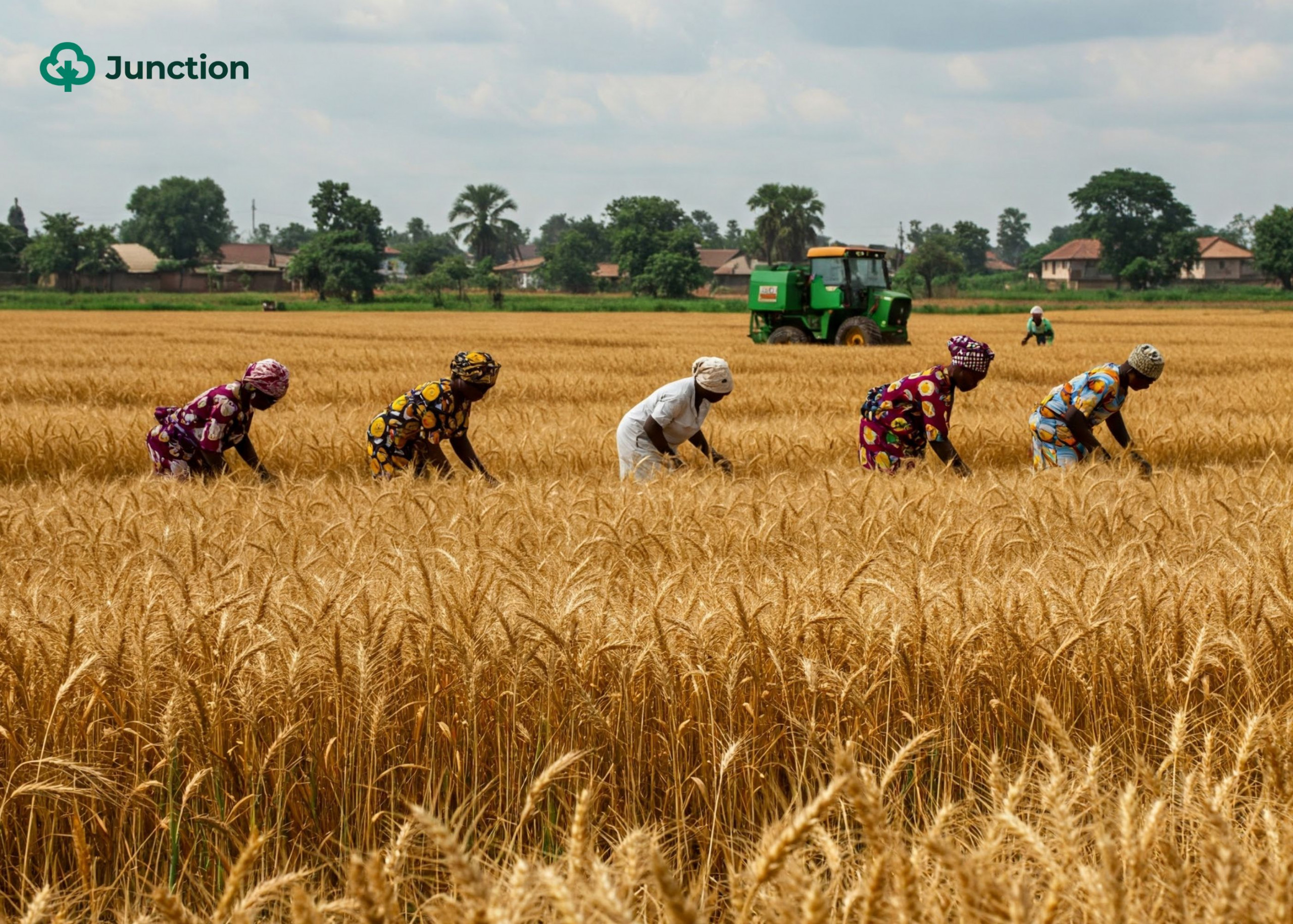News in brief:
– Nigeria relies heavily on wheat imports, spending nearly $3 billion in 2023, as local production remains low due to environmental challenges and insufficient irrigation.
– To reduce dependency, the country must invest in adaptive strategies like heat-resistant varieties, controlled farming environments, and improved irrigation infrastructure.
Nigeria is among the highest contributors to international wheat trade, with its commodity imports approaching $3 billion in 2023.
Wheat-based products such as bread, pasta, and cereals are dietary staples in the country, contributing to their high demand and economic significance. Food companies in Nigeria use wheat in large quantities, which surpasses the meagre 52,757 tons produced locally.
Nigeria’s wheat production has also fallen significantly over the past decade as smallholder farmers struggle to grow the crop.
Environmental incompatibility poses a significant hurdle for wheat cultivation in Nigeria, as the crop thrives in cooler climates during its critical growth stages. The country’s predominantly warm and tropical conditions make it difficult for wheat to reach its full potential without intervention.
Unlike temperate regions, where winter wheat benefits from natural cold exposure, Nigerian farmers must contend with high temperatures that can hinder proper grain formation. This challenge necessitates the adoption of adaptive strategies such as heat-resistant wheat varieties, modified planting schedules, and technological advancements to simulate the required growing conditions.
Furthermore, the reliance on rain-fed agriculture among Nigerian farmers complicates wheat production, as the crop requires consistent moisture levels at different growth phases. Without sufficient irrigation infrastructure, wheat farming remains risky and yields unpredictable. Investing in controlled environments, such as greenhouse farming and precision irrigation, could help address these constraints, but the high cost of such technologies remains a barrier for many small-scale farmers.
As the 12th highest importer of wheat (in 2023), government support, research collaborations, and access to modern farming techniques will be crucial in making wheat production more viable in Nigeria despite its climatic limitations.



